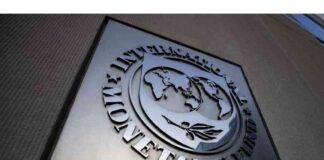Meta, the parent company of WhatsApp, announced on Friday that it had recently identified and blocked a “small cluster” of WhatsApp accounts associated with an Iranian hacking group targeting officials linked to President Joe Biden and former President Donald Trump. The company revealed that these accounts were believed to be linked to APT42, an Iranian state-sponsored cyber espionage actor known for targeting various organizations and individuals.
According to Meta’s blog post, the fake WhatsApp accounts were part of a larger scheme aimed at exploiting political and diplomatic officials, as well as other public figures associated with both the Biden and Trump administrations. In addition to targeting individuals in the United States, the campaign also extended to people in Israel, Palestine, Iran, and the U.K. It is clear that these malicious actors were actively trying to sow discord and disrupt the political landscape in multiple countries.
One of the key factors that raised red flags for Meta’s security team was the nature of the messages being sent from these fraudulent accounts. The messages posed as technical support for popular email services such as AOL, Google, Yahoo, and Microsoft. Some recipients of these suspicious messages reported them to WhatsApp using the in-app reporting tools, which ultimately led to the discovery of APT42’s involvement in the operation.
This incident comes at a critical time, with less than 75 days until the November election. The public’s attention is increasingly focused on how social media platforms like Facebook, owned by Meta, are being exploited for malicious purposes. Meta has reassured users that there is no evidence to suggest that any WhatsApp accounts were compromised in this particular incident. However, the company is actively collaborating with law enforcement agencies and industry peers to share relevant information and prevent future cyber attacks.
The discovery of these Iranian hackers targeting officials associated with both the Biden and Trump administrations is a stark reminder of the ongoing threats posed by state-sponsored cyber espionage actors. It also underscores the importance of robust cybersecurity measures and constant vigilance in today’s digital landscape.
### The Growing Threat of State-Sponsored Cyber Espionage
State-sponsored cyber espionage has become a major concern for governments and organizations around the world. These sophisticated hacking groups are often backed by nation-states and operate with the goal of stealing sensitive information, disrupting critical infrastructure, and influencing political events. The case of APT42 targeting officials linked to both President Biden and former President Trump highlights the global reach and impact of such malicious actors.
APT42, also known as Charming Kitten, has been previously identified by tech companies like Google as an Iranian state-sponsored cyber espionage actor. The group has a history of targeting a wide range of entities, including activists, non-government organizations, media outlets, and now, political officials in multiple countries. Their tactics often involve using fake accounts and phishing emails to gain access to sensitive information and carry out malicious activities.
The fact that APT42 was able to create a “small cluster” of fake WhatsApp accounts to target high-profile individuals associated with both the Biden and Trump administrations is a cause for concern. It demonstrates the group’s ability to adapt and evolve its tactics to suit its objectives, highlighting the need for continuous monitoring and proactive cybersecurity measures to counter such threats.
### The Impact on Political Campaigns and Election Security
The revelation that a foreign actor had compromised the Trump campaign’s network and obtained internal communications is a troubling development. It raises serious questions about the security of political campaigns and the potential for foreign interference in the electoral process. Microsoft’s identification of several Iranian hacking groups attempting to influence the U.S. presidential election further underscores the need for heightened vigilance and collaboration between tech companies, government agencies, and political campaigns.
The spear phishing email sent by an APT42-affiliated group to a high-ranking official on a presidential campaign highlights the sophistication of these state-sponsored hacking groups. By compromising the email account of a former senior advisor, the hackers were able to launch a targeted attack on a key individual within the campaign. This incident serves as a stark reminder of the vulnerabilities that exist within political campaigns and the importance of implementing robust cybersecurity measures to protect sensitive information.
In 2019, Microsoft identified hackers linked to the Iranian government who targeted an unspecified U.S. presidential campaign, among other government officials and media outlets. This pattern of targeting political campaigns and officials underscores the need for a coordinated and proactive approach to safeguarding election security and preventing foreign interference in democratic processes.
### The Role of Tech Companies in Combating Cyber Threats
Tech companies like Meta play a crucial role in detecting and mitigating cyber threats posed by state-sponsored hacking groups. By actively monitoring their platforms for suspicious activities and working closely with law enforcement agencies, these companies can help prevent malicious actors from carrying out their nefarious activities. Meta’s swift action in blocking the fake WhatsApp accounts linked to APT42 is a testament to the company’s commitment to safeguarding its users and maintaining the integrity of its platforms.
Collaboration between tech companies, government agencies, and industry peers is essential in the fight against state-sponsored cyber espionage. By sharing information and best practices, these stakeholders can collectively enhance their cybersecurity defenses and respond more effectively to emerging threats. The recent incident involving Iranian hackers targeting officials associated with President Biden and former President Trump serves as a wake-up call for the need for increased cooperation and vigilance in the face of evolving cyber threats.
In conclusion, the discovery of Iranian hackers targeting officials linked to both the Biden and Trump administrations underscores the pervasive threat posed by state-sponsored cyber espionage actors. It highlights the need for continuous monitoring, proactive cybersecurity measures, and collaboration among tech companies, government agencies, and political campaigns to safeguard election security and protect sensitive information. As the digital landscape continues to evolve, it is imperative that stakeholders remain vigilant and proactive in countering cyber threats and preserving the integrity of democratic processes.






















